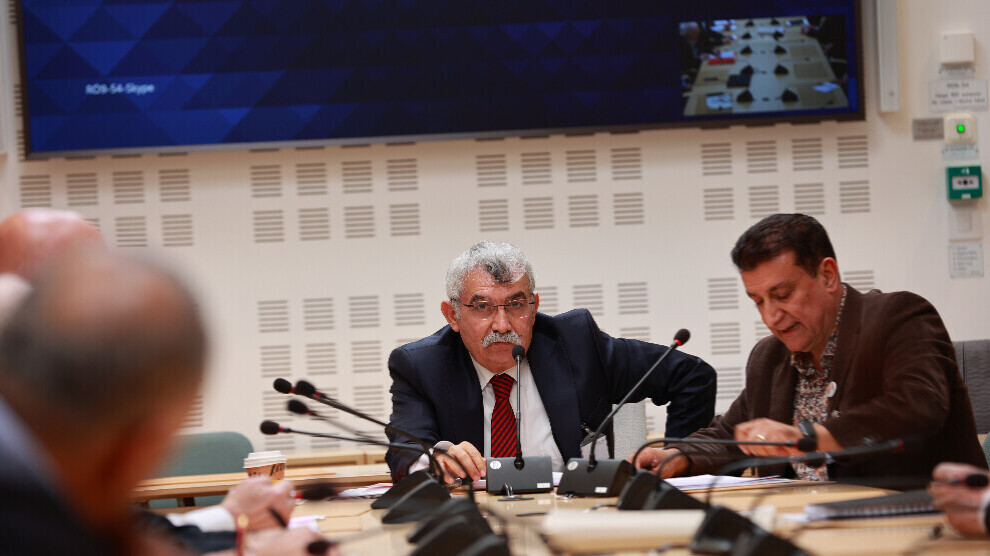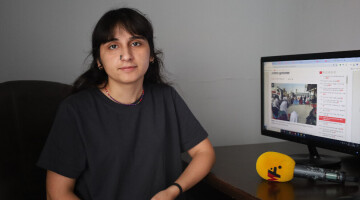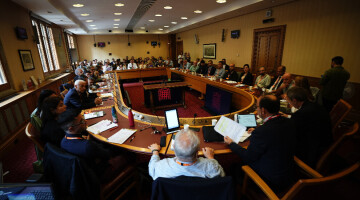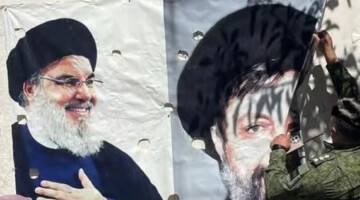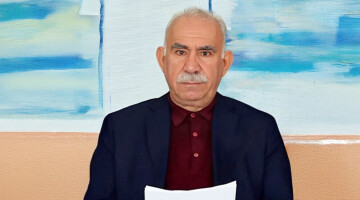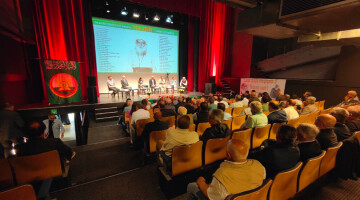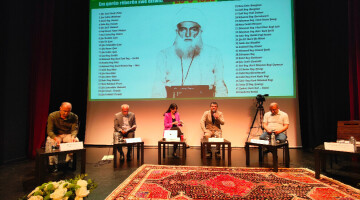A conference on the Kurdish question, the PKK ban in Europe and the lack of democracy in Turkey took place in the Swedish Reichstag on Wednesday.
The conference was attended by MPs from all parties represented in the Swedish Parliament and representatives of civil society organizations. The organizer was the Kurdish-Swedish Friendship Group, which has been in parliament for about thirty years. The conference dealt with the situation in Turkey and the effects of the criminalization of the Kurdish liberation movement.
Özsoy: The Turkish state is not only concerned with the PKK
HDP deputy Hişyar Özsoy spoke at the conference about the situation in Turkey and said: “An anti-Kurdish attitude has been established in all state institutions. The Turkish state is not only concerned with fighting the PKK, it attacks everywhere, currently also in Iraq. It wants to destroy the Kurdish achievements and divide up Iraq. Erdogan and his partners have stated numerous times that they will not repeat the mistake made by the Turkish state in Iraq in 1995. They will never allow the Kurds to have any status in Iraq or Syria.”
Aydar: The bans have crossed the borders of Turkey
In his presentation, the Kurdish politician Zübeyir Aydar went into the Kurdish uprisings since the founding of the Republic of Turkey and said that the 29th uprising began with the PKK. “The PKK was founded 49 years ago by a small group of students. Like all other Kurdish movements, it was banned and its members imprisoned. 38 years ago, the PKK was forced to make its demands heard through an armed struggle. This phase continues today.
As the Kurdish liberation movement grew and spread, the bans crossed the borders of Turkey and were carried to Europe and the United States. Turkey has sought support abroad, and one by one its allies have banned the PKK and added it to their lists of terrorist organisations. Arrests and trials followed, affecting not only PKK members. During this time, tens of thousands of people were investigated, especially in Germany. They have been arrested, arrested, their bank accounts have been frozen, their residence permits have been revoked, their travel documents have been confiscated. Hundreds of clubs, newspapers, agencies, TV and radio stations were banned and their assets confiscated.”
"Germany is at the forefront of repression"
Aydar continued: “Germany is at the top of the countries that are implementing the ban on PKK. Countless investigations have been initiated, excessive penalties and sanctions have been given. More than 10,000 people are affected by these measures. In the course of the ban, 408 criminal proceedings were initiated, all of which ended with imprisonment. In Germany there are still ongoing trials and Kurdish political prisoners. During the Merkel government, investigation files against 6,500 Kurds were made accessible to the Turkish authorities. Unaware of the situation, some of those affected travelled to Turkey and were arrested.”
The example of Roza K. from Nuremberg
Aydar made an example on how Germany affected the life of many Kurdish citizens. “I would like to mention one of the people who were affected by this policy of repression. Roza K. lives in Nuremberg. In 2006 she was fined. For 16 years she has been going to the police station every week to sign. She is only allowed to leave the urban area within a radius of 15 kilometers. Because her job, where she has been employed for five years, is outside of this area, she was arrested there as a wanted criminal. Obviously, this measure was also intended to isolate them socially. Her daughter's residence permit was revoked, which was only reversed again through public pressure. She herself is conducting a persistent legal battle and has so far spent 62,000 euros on legal fees. Her children live outside the designated area and she cannot visit them. The situation has psychological consequences for them. She says she is exhausted.”
Similar problems in France
Aydar continued: “Similar problems exist in France. According to journalist Patrick Pesnot, around 700 Kurdish activists were arrested between 2007 and 2012. In 2021, the French Ministry of the Interior froze Sahin D.'s assets. One of the reasons given for this was his participation in a memorial event for the three Kurds who were murdered in an attack in Paris in 2013. Agit P.'s assets were frozen in 2019 on the grounds that he co-organized the Paris tribunal on Turkey's crimes against humanity and war crimes in Kurdistan the year before. Another reason given was the talks he had with MPs and Senators on the Kurdish issue.”
"The list of terrorist organisation prevents a peaceful solution"
Cases are also known from Sweden and other European countries in which Kurds saw their residence permit revoked because they were involved in Kurdish associations or had contacts with Kurdish parties such as the PYD. According to media reports, more than a hundred people are affected in Sweden. “These examples show that the ban policy is not limited to one party. The list is used far beyond its purpose and it affects an entire people," says Zübeyir Aydar, adding: “The bans and the list of terrorist organisations represent a significant obstacle to a peaceful solution to the Kurdish question. The ban must be lifted and the PKK removed from the list of terrorist organizations. We are speaking here in the Swedish Parliament and the Kurdish people have expectations of the Swedish government and political circles. I would like to take this opportunity to appeal to the government of Sweden to help us and to work to rectify the EU terrorist organisations list. This list only strengthens the hand of pro-war pros like Erdogan, and most importantly, it hinders a peaceful solution.”

